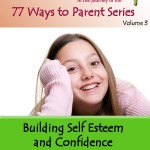Do parents lie to their kids? Do kids tell lies? Why do we lie, often when the truth would serve us better?
We recently had a group of friends and relatives in our home for a dinner party. After some great food and general conversation, I asked them to help me with this project. Everyone was supportive and eager to assist in writing a book. But when I asked them to tell me why they lied, there was a shocked silence.
No one wanted to admit to the group that they lied as adults. They were eager to find solutions to their children telling stories or blaming other people, but hey, they were mature adults and surely they had outgrown those behaviors, or at least they wanted everyone else to think they had.
To read more please click the tab
I explained that developing integrity is an on-going process, not only for children but for adults too.
When I confessed about telling a lie to an insurance agent who called for a number when I was busy preparing dinner, they were reassured. “Oh, you mean little lies; well sure we all do that.”
So I asked them to list the reasons why people would lie. We were able to come up with ten reasons. I later asked a group of children who added to the list and repeated some of the same ones the adults had listed.
Reasons Children Lie
- Conceal guilt and avoid punishment
- Avoid ridicule, disapproval or embarrassment
- Impress others to win acceptance or approval
- To get out of trouble.
- To get someone else into trouble.
- Because we were afraid of the punishment for admitting what we did.
- Because we were boasting or bragging.
- To get people to like us.
- To get people to leave us alone.
- We can’t remember what the truth is.
- We don’t want to assume responsibility.
- We think we won’t get caught.
- To make our lives seem more interesting.
- To inflate our credibility and influence.
- To avoid confrontation and conflict.
- To make others feel good about themselves.
- To get attention, when we feel left out.
- To take advantage of other people or situations.
- To protect other people.
- To cover up another lie we told previously
- Because it has become a habit.
It was interesting to see how much more open and willing the children were to admit that they used lying as a life skill.
Some felt it was wrong, some had trouble defining a lie and some were clearly confused by the messages they were getting from their parents.
What is a Lie?
Remember to distinguish between a lie, which a persistent intent to deceive, and wishful thinking. Most young children have vivid imaginations and cannot think in abstract ways.
If a young child sees a friend with a new puppy, he may state, “Yes, we have a new puppy, too.” He is not being deceitful as much as confusing fact with a fantasy.
He may have been begging for a dog, and his parents were non-committal. In his mind, maybe if he says it often enough and with much emphasis, it will indeed be true.
Casting the wide net of blame is often very common in young children. A mother in a parenting class shared that when she asked her 3 year old daughter if she had wet her pants, she said “No, I am potty trained. But my pants wet me.”
be sure to claim your free eBook at http://judyhwright.com

It will teach you a bunch of ways to use Encouraging Words. You will be glad you did.
